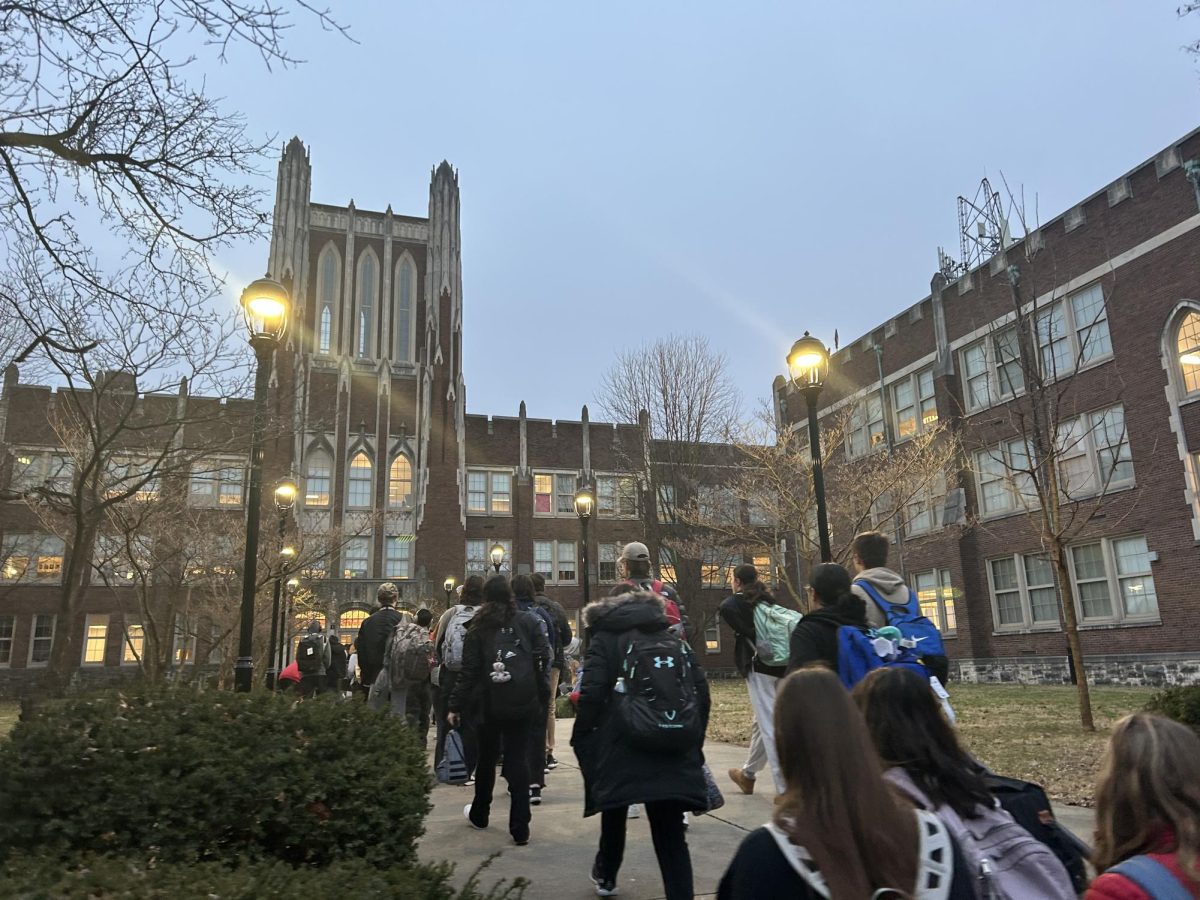It started as a rumor in the halls of DuPont Manual high school; a rumor that moved through lunchroom chatter and hallway gossip; a rumor that needed verifying. “There is a Kentucky law that says the state must pay for our Advanced Placement tests,” students claimed.
After a recent investigation it is evident the Kentucky Department of Education is currently neglecting its legal responsibilities under KRS 160.348 which states: “effective with the 2008-2009 school year and thereafter, students enrolled in AP or IB courses in the public schools shall have the costs of the examinations paid by the Kentucky Department of Education.”
Senator Ken Winters (R) of Senate District 1 helped pass the mandate. “We passed the bill with intent for it to be funded,” said Winters. “But we had to strip the funding out of the bill.” However, Winters insisted that the bill is not an unfunded mandate.
Winters also cited a federal initiative as a possible source of payment for AP tests. Forty-four Kentucky schools are currently aided by the National Math and Science Initiative program, which pays for students to take AP exams. There are currently 12,000 students participating, and 10 more schools are expected to join this fall. However, the initiative does not help many JCPS schools and is a federal initiative unrelated to KRS 160.348.
Although several state employees claim there are no grounds for legal action because money was not allocated to the Kentucky Department of Education for the law, Louisville attorney Teddy Gordon sees things differently. “The only defense they (Kentucky Department of Education) have is to argue the examinations are not exclusively applicable to students enrolled in AP courses,” Gordon said. He also checked KRS revisions and found the law had not been subject to prior amendment, meaning students could have legal reason to sue.
The cost of one AP test is 87 dollars and all students in JCPS who are not on free and reduced lunch must pay to take the exam. The test is not mandatory for students who take AP courses, but students who want to receive college credit must pay to take it. Additionally, students who fail the test do not receive college credit and are not refunded.
About 70% of Manual students take AP tests each year. This year, students collectively spent over 148,000 dollars to take the exams, a cost, which under the KRS 160.348 they should not have to pay.
“The thing that worries most students about AP tests is that on top of all the stress and hard work you put into the class you also have to worry about possibly being out 100 bucks or more,” said Laurel Battey (11).
The 87 dollars students must pay to take the test also deters some students from taking AP classes.
“I really wanted to take AP classes, but I didn’t want to pay for the expensive tests. All my friends and parents told me if I wasn’t going to take the test there would be no reason to even sign up for the class,” said Bridgett Bailey (12). Students who pass AP exams are three times more likely to earn a college degree than students who does not pass.
Some teachers feel the Kentucky Department of Education’s neglect to follow the law deprives students of a fulfilling and equal education.
“In order for any progress to be made, students and parents will have to put pressure on their representatives and the school board,” said duPont Manual Social Studies teacher Allison Hunt.
By Clayton Olash and Nash Whaley




